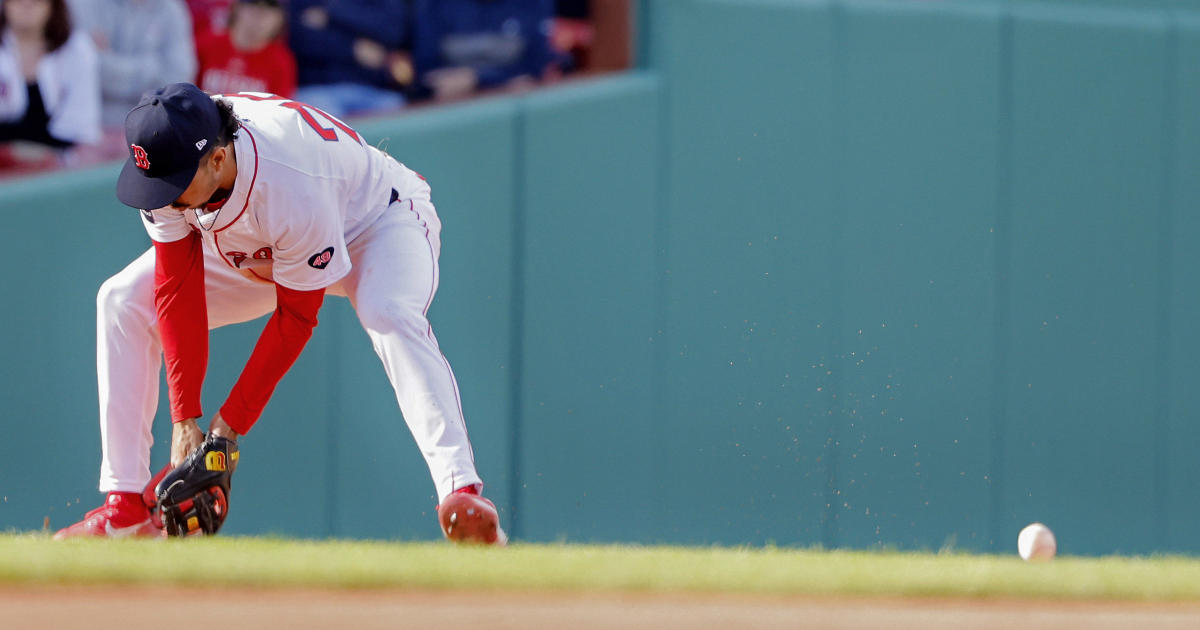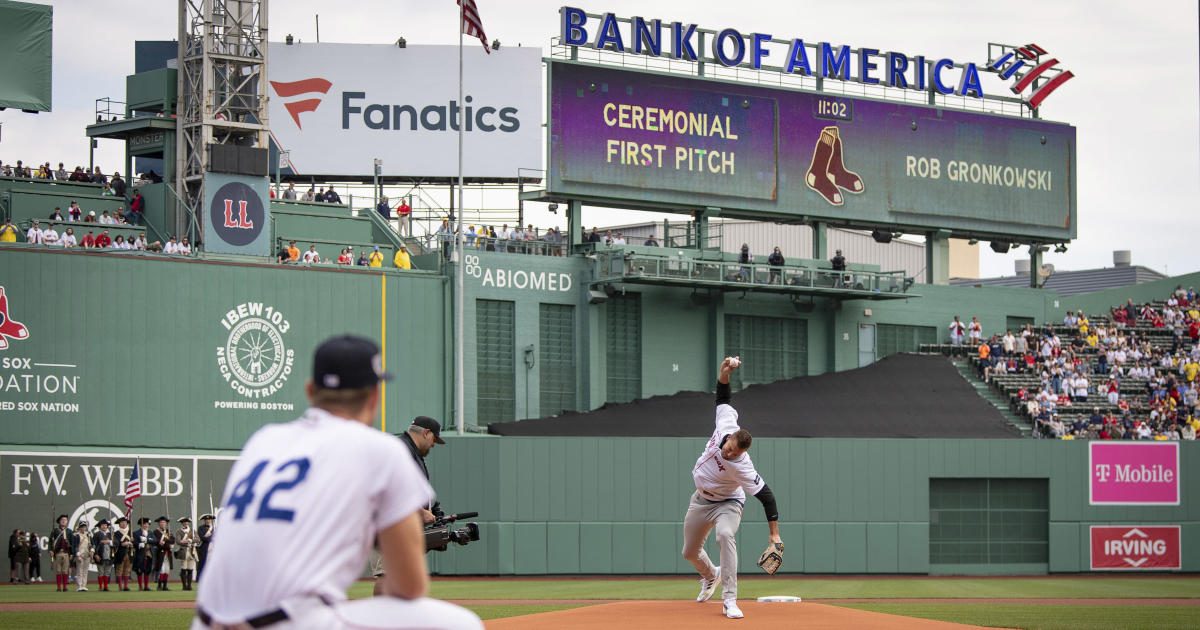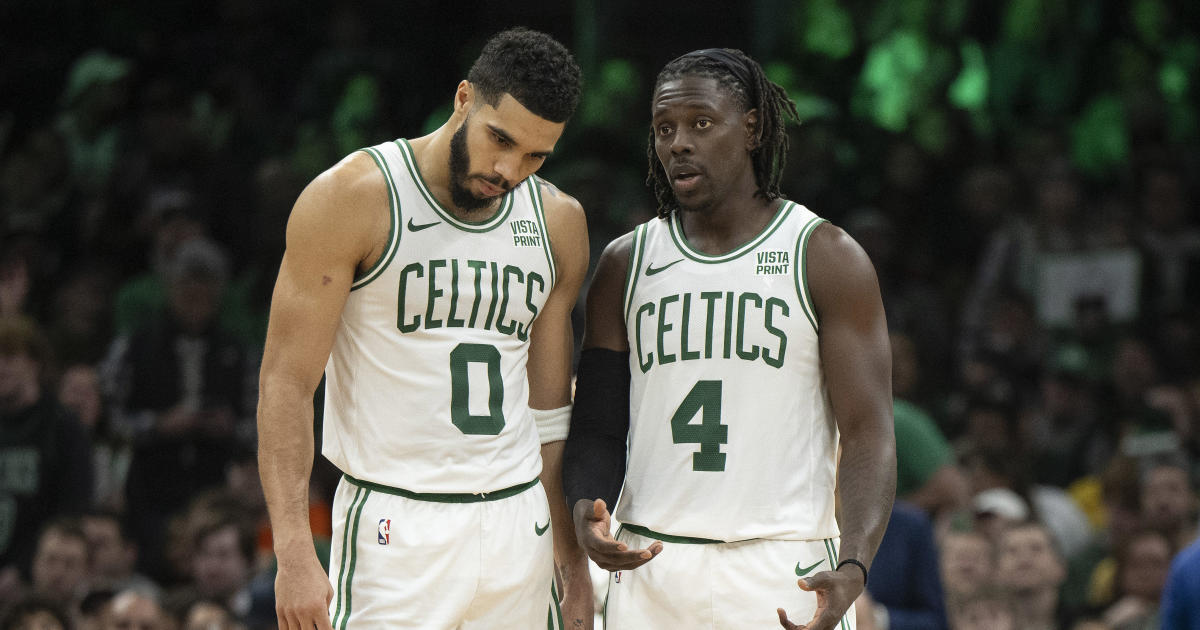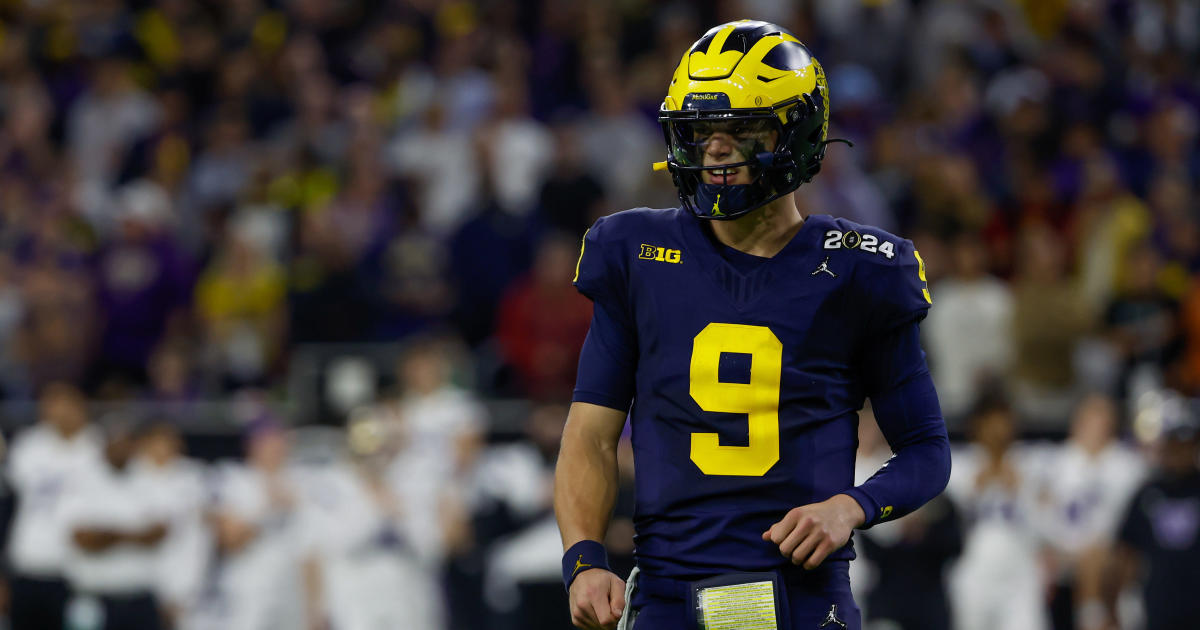The End Of DeflateGate: Tom Brady's Loss Minor Compared To Commissioner's Ultimate Victory
By Michael Hurley, CBS Boston
BOSTON (CBS) -- It really did seem like it might never end.
An issue which any competent commissioner would have resolved within 48 hours very quickly erupted into a national "scandal," one which drew the eager eyes of the network news broadcasts and the 24/7 cable news channels. A multi-million dollar investigation followed, and then a stern punishment handed down from the league on both Tom Brady and the Patriots.
The player fought; the team did not. And the player won, scoring an overwhelming victory in federal court over the commissioner and the league for its flimsy evidence and farcical appeals process.
But it did not end there. Of course, it could not. The league appealed, extending what was considered to be a dead case by another eight or so months and keeping the story alive through an entire NFL season, through a postseason, through a Super Bowl.
The case went to court -- a rather grand court -- in New York. Dozens of lawyers filled the courtroom, seemingly with billable hours tallying above their heads in real time. The three judges seemed nonplussed to have found themselves in the center ring of the circus. They chose to reverse the lower court's decision, thereby reinstating the suspension.
Thereby adding still more life to a case thought to be out of breath.
The fight was reignited. Brady added a lawyer who's argued before the Supreme Court more times than most people have visited their grandparents. That lawyer wrote a scathing petition to the Second Circuit, claiming that the commissioner's actions as arbitrator "[ran] roughshod over the rule of law."
Clearly, the fight was very much alive. If this had to go to the Supreme Court, then it would be going to Capitol Hill.
There was no chance of settling, of caving, of giving in. Brady was dug in, ready to fight -- for the rest of his career, if that was necessary.
But then ... poof. With one simple, 89-word Facebook post -- a Facebook post! -- it ended.
"I have made the difficult decision to no longer proceed with the legal process," Brady wrote, breaking character from his usual goofy Facebook demeanor.
And just like that, all those 18 months, all the millions of dollars, all the lawyers and all of the hemming and hawing, it all came to an abrupt end.
The first question, considering the fight was so strong for so long, was why? Why give in now? Why not see this thing through as long as the law allows?
The obvious answer was provided by the NFLPA, which said, "This decision was made in the interest of certainty and planning for Tom prior to the New England Patriots season." Essentially, if Brady were to be granted a stay of suspension while his legal team drafted a petition to the Supreme Court, he could play through October. But if the Supreme Court rejected the petition (as the Supreme Court does roughly 99 percent of the time), then the suspension would kick in immediately. If that were midseason, that would be problematic. If it were the postseason, it would be catastrophic.
That being said, there was still a chance. The case did raise some fairly significant issues regarding labor law and arbitration, and the AFL-CIO's keen interest in the case surely would have added reason for the country's highest court to consider taking the case. And if the Supreme Court did take the case, it wouldn't be heard for months, thereby giving Brady the freedom to play in the interim while still having a chance to ultimately win the war.
But the odds were not in his favor, so it would seem as though the calculated Brady -- despite a magnificent legal team backing him -- chose not to gamble. With but a few years left in his Hall of Fame career, it was likely less preferable to put at risk a number of crucial games than it was to simply take a September sabbatical.
Even with all of those considerations, and even with those long odds that were facing him, the news Friday came as a major surprise. For perhaps the first time since this farce became a national storyline, a development came along that was actually surprising. Truly.
Just 28 hours before he made his announcement, certain followers of the drama put the odds of Brady dropping his appeal at "Zero," before repeating for emphasis, "Zero, zero."
Alas, what appeared to be the legal equivalent of raiding the artillery and readying for battle was simply ... nothing. Olson's Supreme Court experience matters not when the player doesn't care to take the case there.
Beyond the football reasons, there is the chance that Brady was aware of the public criticism that was sure to accompany any challenge to the Supreme Court. Perhaps he took to heart the opinions of NFL Network hosts who deemed such a legal battle to be in poor taste, or maybe he listened to Ron Borges. Or, perhaps being the face of a major union vs. management battle was something he never particularly cared for and was something from which he simply hoped to remove himself. The fact that the NFLPA has not closed the door on continuing its fight without Brady speaks to that possibility.
But certainly, outside of those who root for the New England Patriots (and perhaps those who care deeply about fair arbitration procedures), there won't be much disappointment to the news felt around the country. Opposing teams' fans revel in any blemish on the Patriots and their golden boy QB, so the fact that the commissioner was just granted unchecked power won't ruffle too many feathers nationally. Not right now, at least.
But that is, undoubtedly, the No. 1 takeaway from this saga. The commissioner -- that same commissioner who allowed his employees to leak false information, thereby blowing this extravaganza into a full five-alarm sideshow and never once apologized or made it right, the same commissioner whose employee provided false information to the team in question so that the team would open its doors to a purportedly "independent" investigation, and the same commissioner who manipulated Brady's testimony in an effort to make him look guilty in the public eye, only for a federal judge to uncover that distortion of reality -- is more powerful than ever before.
Power has always been something he's sought since taking over a decade ago. He dropped his heavy hammer of justice on anyone foolish enough to test his authority, thus establishing an authoritarian reputation.
But now? Now, this commissioner has in writing, from the Second Circuit Court of Appeals, the ability to punish anyone, for any reason, even with limited or downright false evidence, whenever he so desires.
Brady? Brady is old. His football days are numbered. Whether it's a year, two years, or even four years, he won't be around for very long. Meanwhile, the man whose life goal was always to be the commissioner of the National Football League? He was just handed absolute power.
The exact letter of the newly reinforced law presents a dreary outlook for the rights of current NFL players.
"Article 46 put [Brady] on notice prior to the AFC Championship Game that any action deemed by the Commissioner to be 'conduct detrimental' could lead to his suspension," the Second Circuit judges wrote.
That right there -- the statement that the mere existence of a two-and-a-half page article amid a 300-page collective-bargaining agreement puts all players on notice that they could be suspended for anything subjectively deemed "detrimental" by the commissioner -- means that the commissioner has been bolstered by the court system in ways few imagined possible.
Players now have to comply. If the commissioner wants your cell phone, he's going to get your cell phone. If the commissioner wants false information to set the public record, then he will do so. If the commissioner wants to make up the rules as he goes along, change the grounds for punishment months after issuing discipline, and manipulate the system so that despite no legal training he can serve as an arbitrator to preside over a grievance over one of his own rulings?
The commissioner can do that.
It's something that's proven difficult for this commissioner to attain. He tried it with the New Orleans Saints, and their "bounty" system. But a former commissioner -- Paul Tagliabue, a man who is actually a lawyer -- came in and embarrassed the commissioner. Tagliabue tried to lessen the current commissioner's power, because a league where the commissioner can serve as the police and the court system is not a league that Tagliabue wanted to see the NFL become.
So the new commissioner explored alternate routes for several years, calling upon former judges and others considered friendly to the league to rule upon his decisions. But the embarrassments kept coming, with of course none bigger than the commissioner's nonhuman response to Ray Rice knocking his fiancee unconscious with a punch to the head inside of an elevator.
That fiasco was always the inspiration for this quest, and now the commissioner has emerged victorious.
And if Tom Brady, he of infinite fame and millions upon millions of dollars and with the full backing of his union, can't defeat this commissioner, then certainly, no other player stands a chance.
That is the ultimate consequence of this 18-month crusade over PSI. While the country spends its time arguing over guilt or innocence, over the Ideal Gas Law and the non-logo gauge, over the sinister shadow that lurks over 1 Patriot Place, the commissioner will be sitting happily atop his throne, armed for battle the next time he needs to do whatever he feels necessary to reinforce his own standing in the public eye.
The commissioner won, and he won big. Brady and the union lost on a grand scale.
And nobody can believe it's actually over.
You can email Michael Hurley or find him on Twitter @michaelFhurley.



